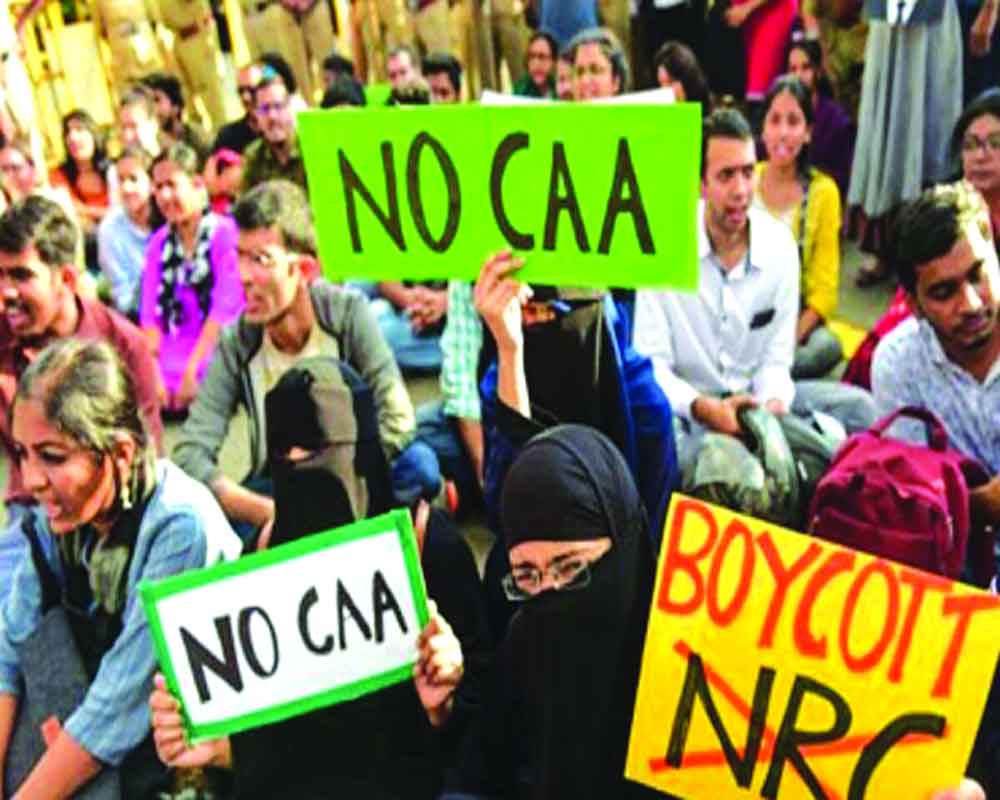It fails to document even a single case of victimization
The conclusion of the recently released USCIRF 2022 annual report that India be designated as a ‘Country of Particular Concern’ — in the company of Afghanistan, China, Saudi Arabia, Pakistan and North Korea — is not only preposterous but also laughable. The scatter-brained script invokes the CAA, rants about attacks on religious minorities, criticizes the Foreign Contribution (Regulation) Act (FCRA) and decries India’s anti conversion laws. But how the committee reaches its conclusion is a mystery for the evidence presented does not justify the conclusion. First, to call the CAA discriminatory is indicative of rank ignorance. In its attempt to demonize the CAA as biased, the report resorts to selective snippets of information like this: “In an ongoing state-level NRC effort in Assam, in 2019 approximately 1.9 million persons were omitted from Assam’s NRC list; approximately 700,000 Muslim residents of Assam are at risk of being stripped of citizenship.” However, the report expediently fails to complete the statement and mention that of the 1.9 million people there were 1.1 million Hindus; to do so would expose its chicanery and deflate its claim of the law being discriminatory. Next focusing on the FCRA (Foreign Contribution Regulation Act) the report avers: “The government erected hurdles against the licensure and receipt of international funding by religious and charitable nongovernmental organizations (NGOs) under the Foreign Contribution (Regulation) Act (FCRA), significantly impacting religious communities” but fails to provide credible proof of its abuse to target minorities. The FCRA was not formulated by the BJP. The FCRA was enacted in 1976 by a Congress Government to ensure that NGO’s conduct themselves with transparency and utilize the foreign monies that they receive for the purpose intended.
The UPA Government under Manmohan Singh rusticated over 4000 NGOs in 2012 following the protests against the Kudankulam nuclear power project in Tamil Nadu which were alleged to be foreign instigated; the same government also refused registration to Amnesty India in 2009. In the 2022 report, the USCIRF highlights the case of Missionaries of Charity to claim bias. The Missionaries of Charity initially had its registration denied because of allegations of child trafficking at one of its institutions; in January 2022, however, the government reinstated its registration. But the report deliberately overlooks the Hindu organizations impacted by the law, namely the Ramakrishna Mission Ashram, Divyajyot Ayurvedic Research Foundation, Shri Swaminarayan Sarvopari Siddhant Digvijay Trust (Vasna) among others. Anti-conversion laws again find mention in this year’s report. To deem anti-conversion laws as bigotry is to fail to understand the ethos of India. The Supreme Court of India (Rev. Stainislaus vs State Of Madhya Pradesh (1977) has clarified that Article 25 which gives all Indians the right “freely profess, practice, and propagate religion’ does not axiomatically mean the right to convert. Laws that echo Gandhi’s thoughts and are in line with the Constitution of India cannot be seen as violating religious freedom. A background check of the key personnel of the USCIRF is an eye-opener. There appears to be a strong Pakistani influence. The outgoing chair Nadine Maenza has strong connections with Terry Allen, the President of the lobbying group Fidelis Government Relations which was hired by IAMC (Indian American Muslim Council an Islamist organization with a strong Pakistani connections) for $55K to get India blacklisted by the USCIRF. In summary, the USCIRF report is a compendium of outright lies, half-truths and distorted information; a vitriolic Hindu-phobic diatribe that reads like a rabid evangelist’s sermon; a one-sided propaganda that fails to document even a single instance of Hindu victimhood but piles on a list of atrocities allegedly perpetrated against minorities in India--all totally unsubstantiated.
(The author, a US-based academic and political commentator, frequently writes on current affairs in India. The views expressed are personal.)
























